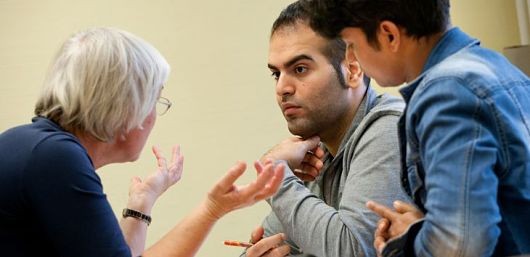Four Ways Europe Should Provide Refugee Integration

In 2015, millions of migrants came to Europe in the hopes of finding security and safety for their families and themselves. The welcoming of refugees continues today and is likely to endure. The majority of recent migrants are not only coming from Syria to Europe but also from Iraq, Eritrea, Kosovo and Afghanistan.
Adapting to a new country and culture can often bring initial resettlement discomfort and uncertainty. Countries seeking to encourage resettlement success are encouraged by nongovernmental organizations to take into account ways to facilitate refugee integration:
1. Education
Many European countries such as the U.K. and France provide education to refugee children. Education is considered a significant factor in successful refugee integration into society.
The British Council asserts, “[Education] would help to combat at source some of the factors contributing to mass migration, extremism and the risk of a lost generation that could blight Syria’s chances of recovery for years to come.”
2. Early Intervention
The Organization for Economic Cooperation and Development (OECD) claims that immediate provision of language courses and access to health care is essential to integration. Additionally, when application-processing times cannot be shortened, it is important to provide refugees with skills training and civic integration training.
Children are especially encouraged to participate early in the process. Learning the language predicts overall educational outcomes. A year without education may have critical results.
3. The Work Force
The United Nations High Commissioner for Refugees (UNHCR) encourages European countries to step up in assisting refugees in further developing their skills. The organization expresses that we should not forget Einstein was also a refugee.
The organization further states that assisting with refugee skill development also means ameliorating the economy. OECD recommends the placement of refugees be near the labor market where jobs are “readily available.”
4. Customized Integration
OECD encourages receiving countries to take into account the diversity of refugees. Oftentimes, refugees are coming from a variety of countries with a diverse range of educational and language backgrounds.
The organization asserts that customized attention to individuals will provide the best results for integration. This method will prepare migrants for self- dependence and the labor market.
As stated by UNHCR, “Far from a problem, refugees can and should be part of the solution to many of the challenges our societies confront. They bring hope: the hope of a better life and a better future for their children and ours.”
A substantial investment by countries is essential to provide refugees with the tools and skills necessary to advance and adapt in a new society.
– Mayra Vega
Sources: British Council, Euractiv , UN Refugees, Keepeek
Photo: Google Images
